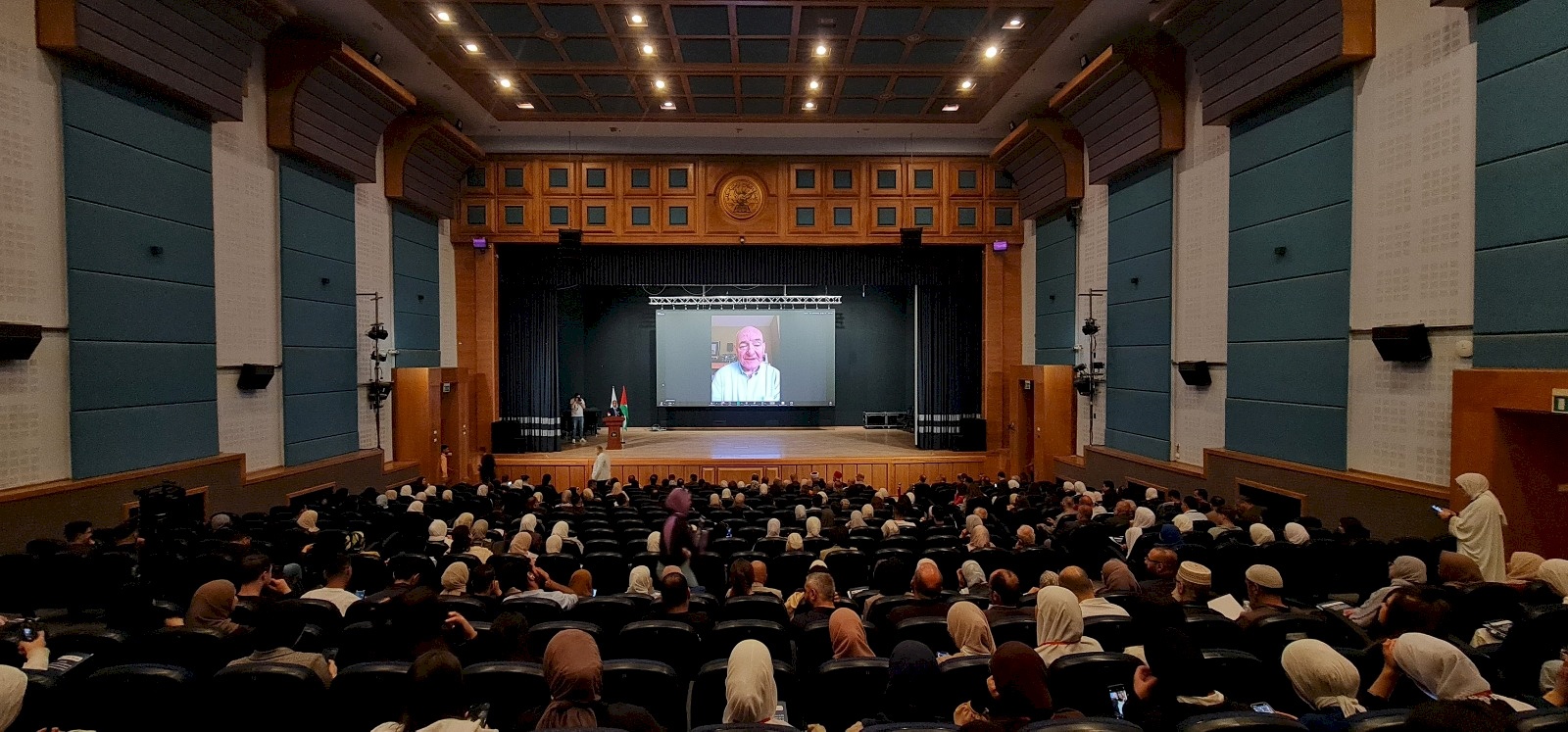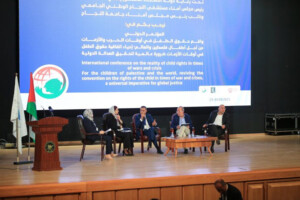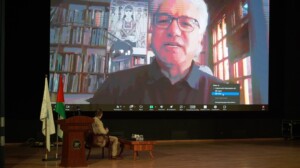We Communicate For Happy Children
 For the Children of Palestine and the world: An International Conference organized by An-Najah University – Palestine and the "Palestinian Network for Early Childhood "on Children’s Rights During Wars and Crises
For the Children of Palestine and the world: An International Conference organized by An-Najah University – Palestine and the "Palestinian Network for Early Childhood "on Children’s Rights During Wars and Crises 
1 May 2025
The Palestinian Child Institute at An-Najah National University, the Arab Network for Early Childhood (ANECD), the Palestinian Network for Early Childhood Development, and the International Network on Peacebuilding for Young Children (INPB), Early Childhood Peace Consortium (ECPC) held a conference titled: “The International Conference on the Reality of Child Rights in Times of War and Crisis — For the Children of Palestine and the World: Reviving the Convention on the Rights of the Child in Times of war and Crises, a Universal Imperative for Global Justice”.
The conference was held over two days, April 29 and 30, at An-Najah National University in Nablus, in the occupied West Bank. It brought together a select group of early childhood specialists, researchers, university professors, legal experts, and representatives from ministries and civil society organizations at the local, regional, and international levels concerned with early childhood issues.
The conference was driven by the growing number of crises in recent years affecting children worldwide, especially in Palestine. It was based on the principle of protecting child rights during war and crises, a cornerstone of international law.
The conference aimed to unite global voices to defend children’s rights, achieve justice, and create practical tools and frameworks for early childhood development under war and occupation, and hold violators accountable. It called for urgent global action and accountability without double standards or political agendas. It also built on a series of programs, initiatives, and previous conferences addressing the growing global crisis affecting hundreds of millions of children living in war and genocide zones.
The conference successfully brought together voices from different countries, institutions, and backgrounds. It provided a space for sharing experiences, expertise, and diverse approaches. Highlights included:
Participants in the conference offered historical, legal, rights-based, and humanitarian perspectives. These were grounded in the situation of young children in Palestine, without overlooking children elsewhere during wars and crises. Discussions covered a wide range of issues, including:

No Peace Without Justice, No Future Without Peace
Dr. Ghassan Issa, ANECD’s General Coordinator, presented an overview of the dire situation of young children in Arab countries, particularly in the Gaza Strip, the West Bank, Sudan, Lebanon, Yemen, and Syria. He clarified that the choice of Palestine as the starting point of the conference was because all rights are violated there at once.
He also called, in an opening speech, for global accountability with the aim of reviving the Convention on the Rights of the Child in times of crisis and holding violators accountable as mandatory grounds for achieving global justice, stressing that “this is the foundation upon which global justice must be rebuilt”.
Issa listed the ongoing obstacles in early childhood development. These include the destabilization of the international human rights system that protects individuals and children. There is also an unprecedented rise in restrictions on international institutions concerned with childhood. UNRWA in occupied Palestine is one of the main institutions affected. Additionally, there is a persistent funding gap for supporting young children and families. Funding has been decreasing, especially during wars.
Moreover, in a presentation on the impact of violence and armed conflicts on childhood from a global and regional perspective, Issa provided an analysis of how such conflicts affect children and early childhood development, based on available data. He clarified that, despite varying contexts among Arab countries, the primary impact on early childhood is similar across different levels, including health, cognitive development, emotional well-being, social development, and protection and safety.
Issa also discussed the major catastrophic consequences of wars, such as child deaths, displacement, the collapse of health and education systems, and long-term psychological effects. He called for urgent action through improved data collection, enhanced legal protection, and other interventions.
Regarding advocacy and partnership to protect children from losing their childhood and genocide, Issa considered the conference as a solid foundation to develop an advocacy plan with three dimensions: global, regional, and national. He also emphasized the need for a new generation of post-genocide research.

The conference also addressed the concept of “un-childing” as a tool of occupation used to deprive Palestinian children of their basic rights by treating them as if they are not children, but rather outside the bounds of humanity—reflecting a racist mindset that denies them safety, identity, and life.
Interventions affirmed the right of Palestinian children to live their full identity, calling for the promotion of liberatory thought based on the ability of peoples to heal and transform that thought into practical tools. They emphasized the elements of childhood and the humanity of Palestinian children as a key entry point for any rights-based action.
In this context, legal experts reviewed the legal frameworks and accountability systems to prevent violations of children’s rights. Palestinian organizations working to protect children’s rights presented their initiatives and the challenges they face, both in Gaza and the occupied West Bank.
The conference concluded with key recommendations, including:
• Forming a multi-dimensional committee to follow up on organizing a global advocacy campaign on children’s rights in times of crisis.
• Holding conferences and workshops to examine the conference topics in greater depth.
• Establishing local bodies across the country to develop programs and interventions focused on children, drawing on research results, and establishing psychosocial, educational, and developmental interventions.
Note: ANECD will soon publish a booklet, prepared by An-Najah National University, documenting the conference’s proceedings. It will feature key interventions and recommendations.
